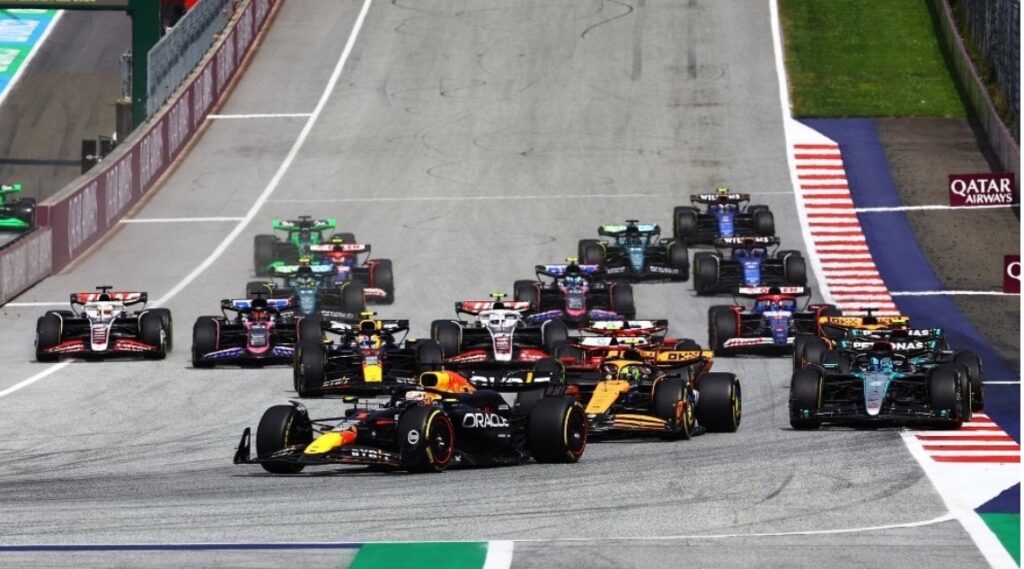
Move Could Bring Formula 1 Back to Africa After 32 Years
Nigeria has officially launched an ambitious bid to host a Formula 1 Grand Prix in Abuja, a historic move that could return the world’s premier motorsport to Africa for the first time in more than three decades.
If successful, the Abuja Grand Prix would make Nigeria the first West African nation ever to host a Formula 1 race — a landmark step for both African motorsport and Nigeria’s global sporting ambitions.
⸻
A Return to Africa After 32 Years
Formula 1 last raced on African soil in 1993, when South Africa’s Kyalami Circuit was dropped from the calendar. Despite widespread support among drivers, fans, and stakeholders for the sport’s return to Africa, logistical and financial challenges have kept F1 away.
Nigeria’s bid aims to change that narrative. Motorsport analysts say it could mark a turning point for the continent’s presence in global motorsport and open up a vast new market for Formula 1.
⸻
Why Abuja?
Abuja has been chosen as the proposed host city due to its modern infrastructure, central location, and capacity for large-scale development.
Planned as Nigeria’s purpose-built capital, Abuja boasts wide roads, organized layouts, and vast open spaces suitable for constructing a Formula 1-grade track.
Early design concepts suggest a street-style circuit weaving past the city’s landmarks — potentially creating one of the most scenic races on the global F1 calendar.
⸻
National Vision and Global Impact
Hosting a Formula 1 race is about more than sport for Nigeria — it aligns with national goals of economic diversification, tourism growth, and international branding.
Key anticipated benefits include:
• Tourism Boost: Tens of thousands of visitors and millions in revenue for airlines, hotels, and restaurants.
• Infrastructure Development: Upgraded roads, hospitality, and transport systems in the capital.
• Youth Empowerment: Inspiring a new generation of Nigerian engineers, drivers, and motorsport enthusiasts.
• Global Visibility: Exposure to Formula 1’s 400+ million global audience.
⸻
Government Commitment
The bid has full backing from the Federal Government of Nigeria, with President Bola Tinubu reportedly endorsing Abuja as host city.
Minister of Sports, John Owan Enoh, stated:
“Nigeria has the ambition, the resources, and the determination to bring Formula 1 back to Africa. Abuja is prepared to meet the technical, logistical, and financial standards required to host a world-class race.”
Talks are already underway between Nigerian officials and Liberty Media, Formula 1’s management company, toward securing a multi-year hosting deal.
⸻
Global Expansion and African Potential
Formula 1 has rapidly expanded into new regions in recent years — from Miami and Las Vegas to Jeddah and Qatar — as part of a global strategy to tap into emerging markets.
Seven-time world champion Lewis Hamilton has been one of the most vocal advocates for F1’s return to Africa, calling it “a race that needs to happen.” Nigeria’s proposal could align perfectly with this push for global inclusivity.
⸻
Challenges Ahead
Experts caution that while Nigeria’s bid is promising, major hurdles must be overcome:
1. Infrastructure: Only FIA Grade 1 circuits qualify for Formula 1. Nigeria must build or adapt a facility to meet these strict standards.
2. Financing: Hosting fees range between $30–$60 million annually, excluding infrastructure costs.
3. Logistics & Safety: Formula 1 requires elite security, medical, and media arrangements.
4. Public Engagement: Motorsport is still growing locally — strong public enthusiasm will be essential.
⸻
Africa’s Motorsport Momentum
Nigeria’s growing youth interest in motorsport, alongside emerging karting and drifting communities, makes it well-positioned to lead Africa’s re-entry into the F1 scene.
Motorsport enthusiasts across Kenya, South Africa, and Morocco have reacted with excitement and curiosity, with some analysts suggesting multiple African races could emerge in future seasons.
⸻
Economic Potential
F1 races have historically delivered major economic benefits:
• Singapore GP: Estimated $150 million annual boost.
• Austin, Texas GP: Nearly $300 million yearly impact.
An Abuja Grand Prix could mirror such results, driving growth across hospitality, aviation, retail, and local entrepreneurship.
⸻
Public Reaction
Excitement is already building across Nigeria’s online community.
“If Nigeria pulls this off, it’ll be the biggest sporting event in our history,” one fan tweeted.
“Abuja Grand Prix will show the world what Nigeria is capable of,” another wrote.
⸻
What’s Next
Formula 1’s governing body and commercial operators will now review Nigeria’s proposal, with feasibility studies and site inspections to follow. If approved, Abuja could host its first race as early as 2027.
⸻
Conclusion
Nigeria’s bold bid to host a Formula 1 Grand Prix is a defining statement of intent — a vision that blends sport, infrastructure, and national pride.
If successful, it would not only return Formula 1 to Africa after 32 years but also cement Nigeria’s place on the world stage as a rising hub for innovation and global events.
For now, the engines are quiet — but the dream is loud. And Abuja may just become Africa’s next racing capital.
